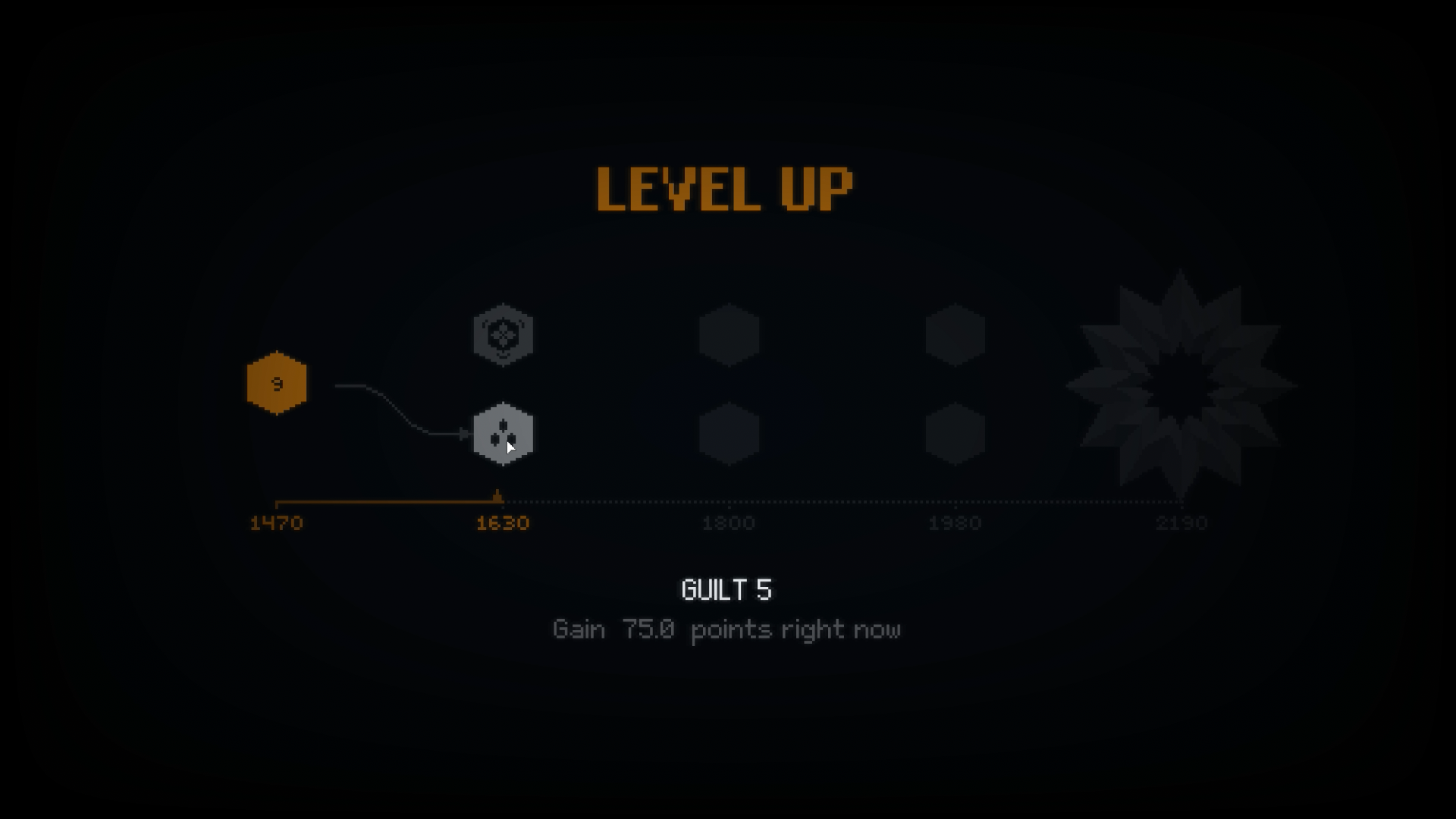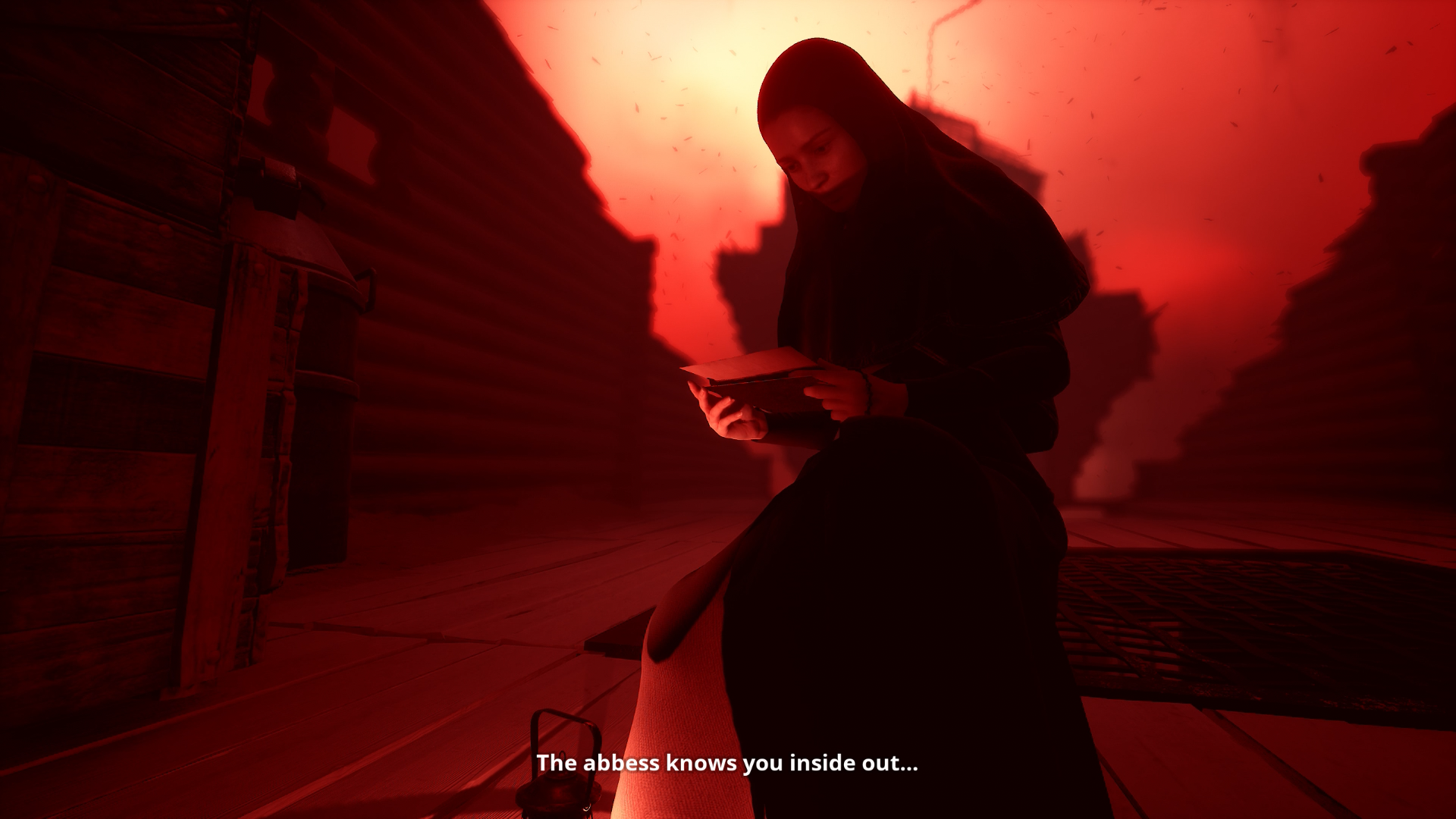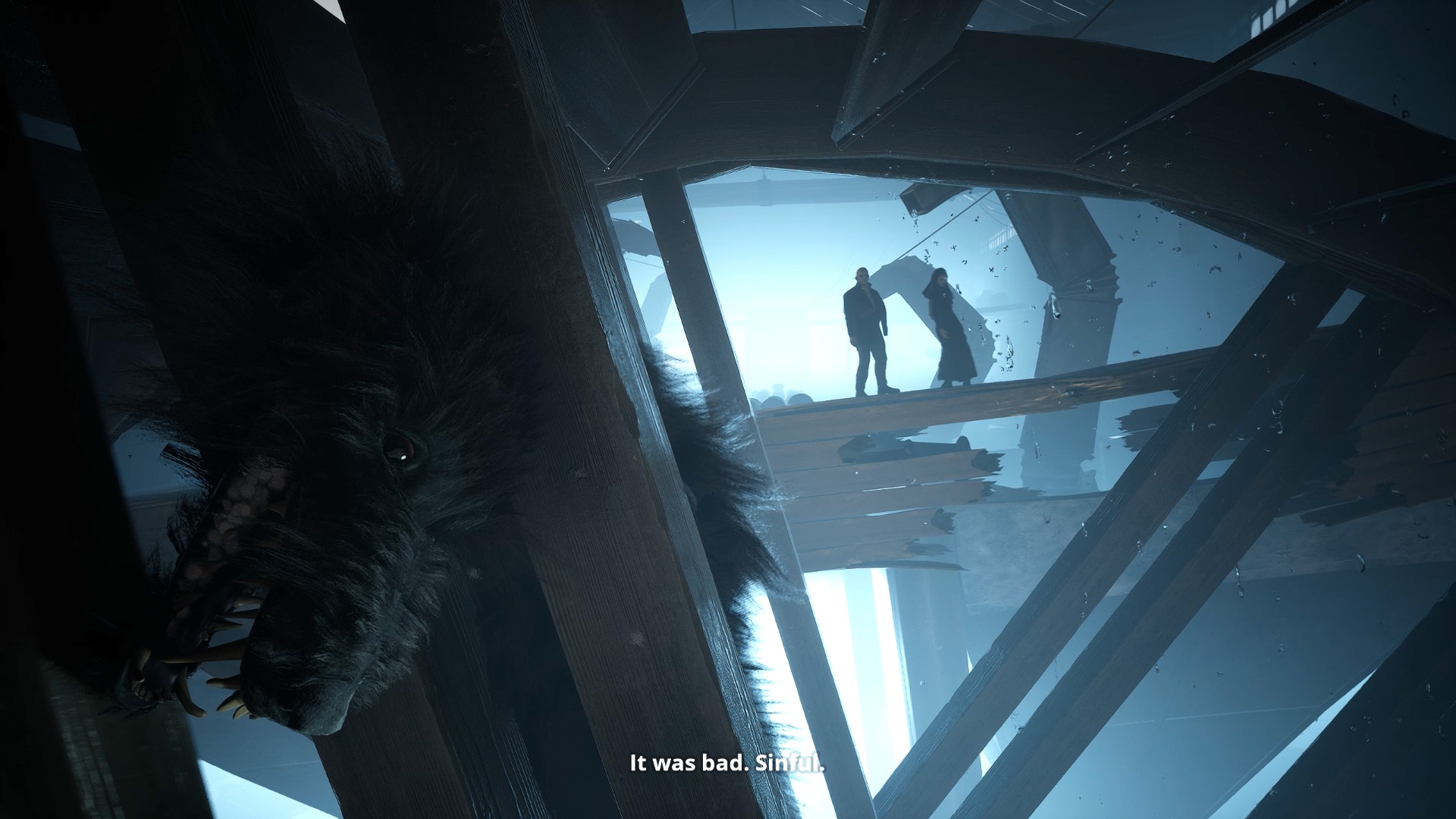No game has ever read The Master and Margarita as much as Indika has read The Master and Margarita. A third-person adventure game from Odd Meter, a Russian studio that left the country after the invasion of Ukraine, Indika already seems like so much more than that clatter of marketing-team-whiteboard genre adjectives makes it sound, and its Steam Next Fest demo has instantly made it my most anticipated game of the year so far.
The game stars Indika, a Russian nun with the devil in her head who's on a journey through an alternate 19th-century Russia. The demo—so far as I can tell—drops you some way through the game: Indika and her companion/abductor Ilya awaken in the snow, the latter's arm a sickly criss-cross of frostbite and rot, and have to make their way to safety through the scattered remains of an exploded (and enormous) dyeworks, pursued by a shaggy, snarling behemoth of a dog.

It is confidently and knowingly bizarre from the main menu onwards. I had been excited to play Indika ever since I stumbled across it on Steam some time last year, but the vision of it I held in my head was always an off-kilter walking simulator: Dear Esther with a sense of humour.
I was not prepared for the chiptunes to kick in as Indika and Ilya rode their combination stove/bicycle through the snow, nor the hints of 16-bit pixel art in the game's UI. I certainly wasn't ready to stumble across a statuette of Paraskeva of the Balkans in a house full of eyeless icons of Christ Pantocrator, and for the discovery to tip me over to a literal level-up screen where I had to choose whether to spec into Repentance or Guilt (I went Repentance: it had better long-term build potential).

Indika is very aware it is a videogame, and is equally aware that the trappings of videogamedom are at aesthetic odds with a story about a young Russian nun's journey to the centre of her soul. But it leans into it, mining it for ironic comic effect in a way I almost immediately fell in love with. By the time Indika knelt down to read a letter by lamplight and the chiptune/dubstep-ish music kicked in as the devil chirped up to taunt her, I was already more excited to play the full game than I have been about anything in some time. Odd Meter has read its Gogol as well as its Bulgakov, and boy if the studio isn't going to show off about it.
Odd Meter has read its Gogol as well as its Bulgakov, and boy if it isn’t going to show off about it
Oh, you do also have to play the thing, of course, an experience that rarely got in the way of enjoying the psychedelic narrative. The demo delivers you from small hub to small hub, each one containing some central puzzle you need to solve to progress and a bunch of nooks and crannies to explore for hagiographies, religious icons, and other things which gradually accumulate XP in the top left of your screen.

The puzzles strike the right balance, for the most part: demanding you engage the problem-solving part of your brain to some extent without tipping over into frustration. Move a table around so you can climb on a thing and find the right-shaped key to go in a hole, find the open window that leads into a locked house, traverse a fragmented dreamspace with the power of the hesychasm while the devil taunts you about your banishment from the monastery: You know, puzzle game stuff.
A section toward the end in which you have to flee that enormous dog I talked about earlier did see Indika meet several grisly ends before I trial-and-error'd my way to the correct route, but that was the exception rather than the rule, at least for the demo.
I doubt the puzzles by themselves—at least the ones in the demo—would be enough by themselves to keep anyone hooked, but all the rest of Indika seems so smart, so strange, and so filled with confident, ironic swagger that I defy anyone not to be at least a little charmed by the whole thing, even if you aren't quite as deliriously Russian culture-brained as me. Consider me signed up to check this game out as soon as it hits in, says its Steam page, Q1 this year. I'm already there in spirit.

You can find Indika and its Steam Next Fest demo over on, well, Steam.






